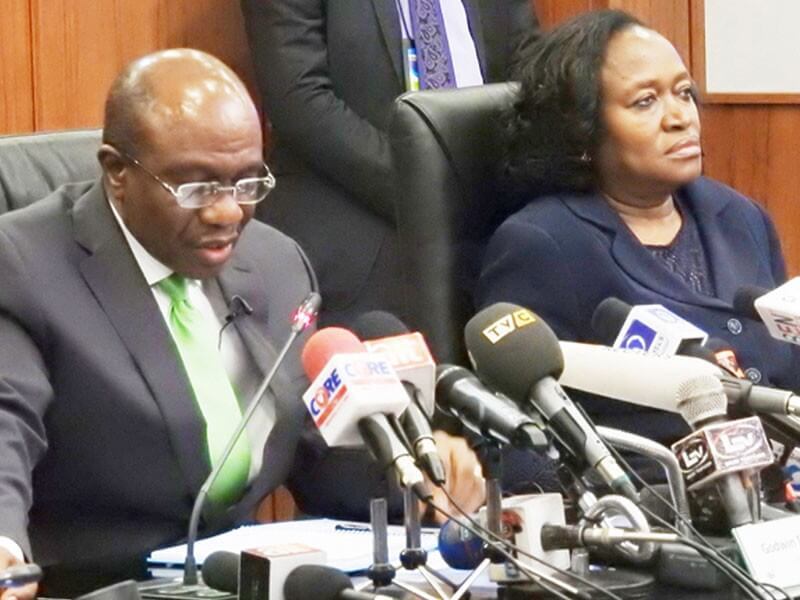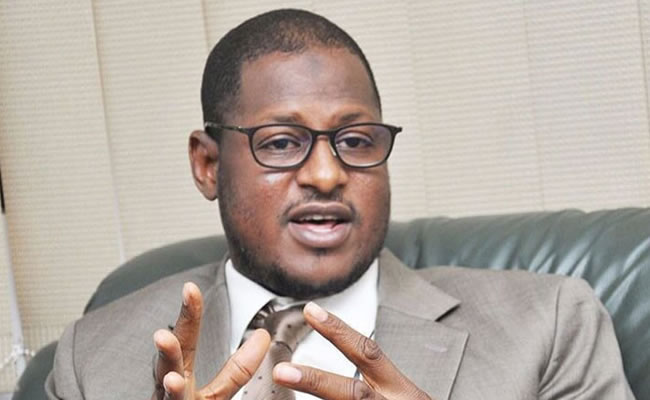MPC: Anxiety as uncertainty faces financial stakeholders, manufacturers

Anxiety, expectations have continued to rise over the likely outcome of the Monetary Policy Committee (MPC) of the Central Bank of Nigeria (CBN), as it begins its last for the year, between today and tomorrow 20th and 21st of November, 2017.
This is because there have been pressures from different financial stakeholders seeking for reduction of the MPR from its current of 14 per cent. But the CBN had stood steadied throughout its meeting in the outgoing year to hold the benchmark interest rate at its current rate.
The MPC, at its September meeting, had maintained the Monetary Policy Rate (MPR) at 14 per cent, with the asymmetric corridor at +200 and -500 basis points around the MPR; retained the Cash Reserve Requirement (CRR) and Liquidity Ratio (LR) at 22.50 per cent and 30 per cent, respectively.
But financial stakeholders and the business environment becoming more unfavourable in 2017 for manufacturing companies, according to the result of 2017 Manufacturing Sector Survey conducted by NOIPolls and Centre for the Study of Economies of Africa (CSEA), hiked the clamour for the scaling down of interest rate.
The Private sector operators said it was imperative for the Committee to tinker with 14 per cent interest rate and other monetary aggregates as a way of stimulating economic recovery, following the country’s exit from recession in the second quarter of 2017.
The result of the 2017 manufacturing Sector Survey indicated that 85 per cent of the 496 manufacturing companies interviewed between February and May 2017 across the six geo-political zones of Nigeria, were operating below 75 per cent of their installed capacities.
Barely, a week ago, the National Bureau of Statistics (NBS) announced that the Nigeria’s annual inflation had slowed for the ninth consecutive month in October, easing to 15.91 percent, after recorded its first decline in February when inflation dropped by 0.94 per cent to close at 17.78 per cent.
However, the new figure showed 0.07 per cent points further drop in inflation rate, making it the ninth consecutive disinflation (slowdown in the inflation rate though still positive) in headline year on year inflation since January 2017.
In an exclusive telephone chat with the Daily Times Nigeria over the weekend, the Managing Director/CEO, Highcap Security Ltd, David Adorin, explained that the MPC cannot relax monetary policy for now because it may completely affect the micro economy stability that has been achieved so far.
“May be if the inflation rate decline to a single digit to about nine or so, then there would be bases for the MPC to relax the benchmark interest rate.
“But at it is now, the changes is not material. So, I don’t foresee any changes in monetary policy”, he said.
Adorin, further explained that the benchmark interest rate monitors the inflation rate and the fact that the inflation rate is currently at double digit, adding that it will difficult for the MPC to change the MPR.
According to him, “We are not going to see changes in the MPR not until the inflation declines, before they could have the justification to change the MPR. But if it declines within the current rate is too marginal and does not justify any changes in the MPR yet.”
In the same direction, Managing Director/CEO, Maxifund Investment and Security Plc, Mazi Okechukwu Unegbu, told our correspondent that he doesn’t think there will be any changes in the monetary tools, stressing that the rates are just going to be stable.
Mazi Unegbu, who was a former Chairman of Council/President, Chartered Institute of Bankers of Nigeria (CIBN), noted that the 2017 budget has not been largely implemented, even some part of the 2016 budget has not fully implemented.
“So, the likely expectation from the MPC meeting is that the rates are going to be stable and I will be surprise if they touch any of the indices that are currently on”, he said.
The Maxifund boss noted that the rate is going to be stable and flat for now, until the first quarter (Q1) of next year (2018), stressing that all indicators are going to remain unchanged because anything they do now, may affect the foreign exchange market.
His words: “The forex market has been stable for over six months now, meaning that market has not been distorted in the recent time and the inflation has marginally come down during the same period.
“So, looking at these two indicators, and the benchmark interest rate which has remains at 14 per cent, I don’t think any good economist will want to change any of these indicators. Because inflation rate is coming down, foreign exchange has been stable interest rate has also been stable”, he said.
Although, overnight interest rate, has been a little bit wobbling because of the cash movement but that does not make any major changes.
“For me, everything will be flat until the 2018 budget start working that is when they may want such to change some of the indicators”, he projected.
But in a contrary view, a group of some financial experts have predicted that the MPC may reduce the MPR by a few basis points or adjust the rates around the asymmetric corridor of the MPR at its last meetings for the year.
Although, they agreed to the fact that the current tight monetary policy stance was justified in order to maintain stability in the foreign exchange market and curb the high inflation rate.
Some group of analysts at FSDH Research, in an email comments on the expectation of the outcome of the MPC meeting, stated that looking at the short-term outlook of the Nigerian economy, the MPC may be inclined to commence a monetary policy easing to signal the end of a tightening cycle.
According to them, “the monetary policy easing may come in the form of a marginal drop in the MPR or an adjustment in the asymmetric corridor around the MPR.
They, however, noted that they expected the Gross Domestic Product (GDP) to grow by 1.24 per cent in 2017 and 3.46 per cent in 2018.
While hoping to see an expansion in the Purchasing Managers’ Index (PMI), which will further confirms that the economy is on course to sustainable growth.
They further stated that the inflation rate has been declining since January 2017 and the short-term outlook shows that it will drop further. Furthermore, FSDH Research expects single-digit inflation rate in mid-2018, stating that the outlook favours a monetary policy easing to further stimulate the growth in the economy.
“These developments have improved the inflows of foreign exchange into Nigeria, leading to accretion to external reserves and stability in the foreign exchange market. The foreign investors’ confidence in the Nigerian economy has also improved, leading to increased foreign capital inflows.
With oil price at US$62.31/b as at 15 November, 2017 representing a year-on-year growth of 38.74 per cent couple with the 30-day moving average external reserves which stood at US$34.33bn as at 15 November, 2017.
FSDH financial experts also, observed a marginal drop in the yields on the FGN Bonds, which showed that the risk in the medium-to-long term stability in the economy is waning.
“The movements in the yields in the market may mean that the market is also anticipating a monetary policy easing”, they stated.
Consequently, there are clear indications that the MPC may change its monetary policy position next year, due to the statement made recently by the Governor of the central bank.
Motolani Oseni






